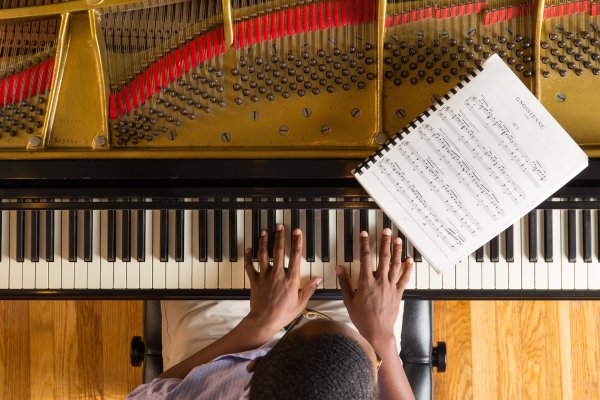Academic Support
To get help in this course, the best place to start is to work with your instructor during office hours and ask your professor if there are any Help Sessions or department-level tutoring offered for this course. The next step is to use the Academic Success Center (ASC) online directory (valpo.edu/academicsuccess) or contact the ASC (academic.success@valpo.edu) to help point you in the right direction for academic support resources for this course. Valpo’s learning centers (Writing Center, Language Resource Center, [Hesse Learning Resource & Assessment Center], and Academic Success Center) offer a variety of programs and services that provide group and individual learning assistance for many subject areas.
Peer Tutoring
The music department provides undergraduate tutors for its first- and second-year courses in music theory and musicianship:
- MUS 109 Musicianship I
- MUS 110 Musicianship II
- MUS 163 Music Theory I
- MUS 164 Music Theory II
This service is free, and tutors are listed in the course syllabus for each eligible class. Students should contact tutors directly to arrange for appointments or group study opportunities. The class instructor and the chair of the department can provide further information about tutoring.
Web Resources
In addition, there are many useful websites that provide free instruction and drill on aspects of music fundamentals. Students can develop their skills with tutorials and drills at the following recommended sites:
- Ricci Adams’ Musictheory.net
- Teoria Music Theory Web
- Dolmetsch Online (more advanced theory)
- Music Theory for the 21st-Century Classroom
Getting Started in Music Theory
Valparaiso University’s music department introduces music theory early in the curriculum, and students will already need to be fluent in basic music rudiments before being allowed to enroll in MUS 163, Music Theory I.
Incoming students should already be able to:
- Read and write pitch notation fluently in treble and bass clefs,
- Understand the use of meter signatures and read basic rhythmic notation,
- Locate specific notes on a keyboard and know the difference between half steps and whole steps both on the keyboard and in notation, and
- Identify and write key signatures for the major keys.
Many high school musicians already have complete mastery of these rudiments. Others may not have had an opportunity yet to focus on this information. Students will be given a placement exam during their auditions and may take a diagnostic re-test in the fall if necessary. Attaining these skills is required to register for MUS 163 and for students to go on to succeed in the core theory sequence.
For students who require extra skills-based instruction in music rudiments, MUS 102, Fundamentals of Music may be taken concurrently with MUS 163, Music Theory I. Topics in this course include fundamentals of note-reading, rhythmic notation, scales, melody, and intervals.
